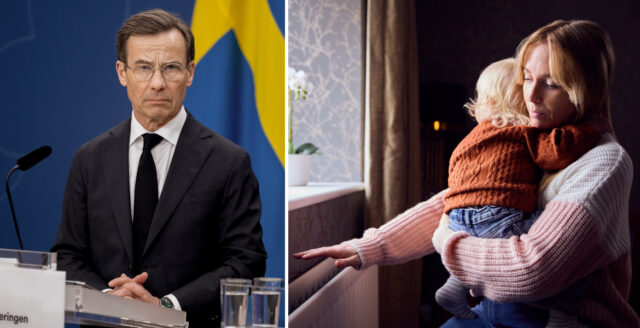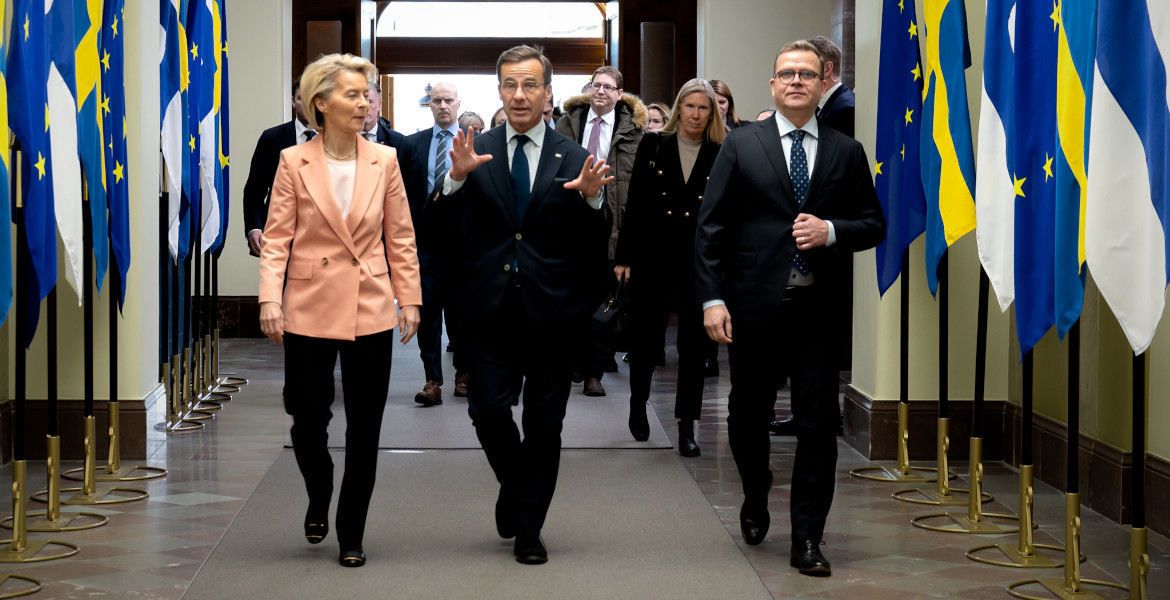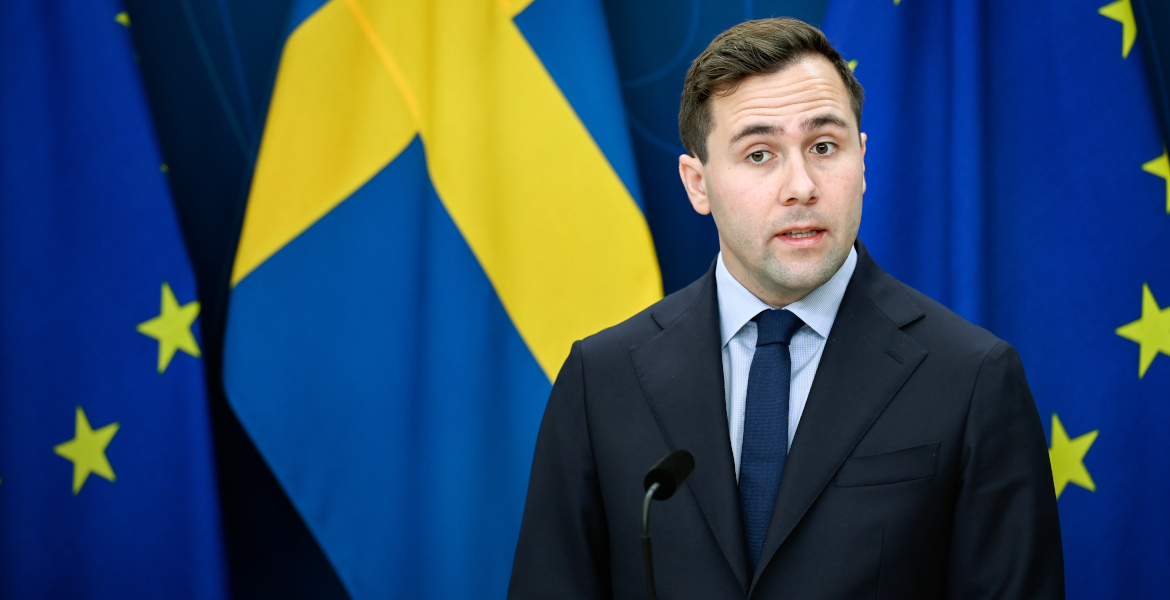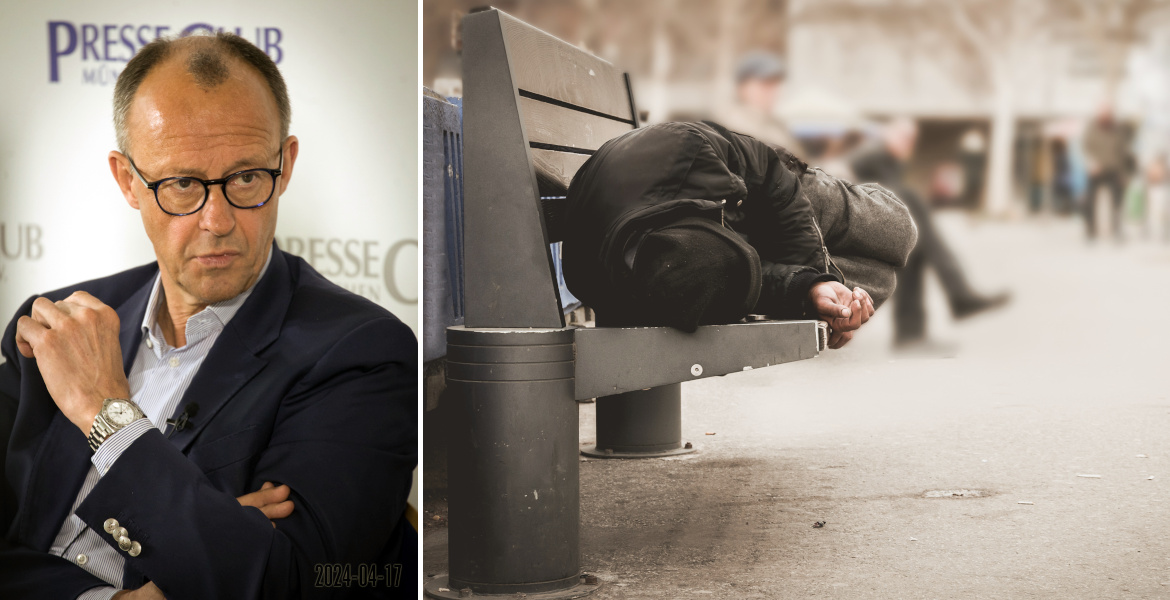The little guy is struggling harder and harder to pay the rent, buy food and avoid getting into debt. Meanwhile, the political establishment in Stockholm and Brussels continues to throw money around like the boy with the gold pants.
Taxpayers' money is being spent on huge projects that seem increasingly disconnected from reality, in the form of sums of money that are almost unfathomable. Recently, for example, the European Commission, headed by Ursula von der Leyen, announced that it wants to spend an additional €800 billion on the military in the proxy war against Russia. For some concrete reference, this is more than seven times the entire Swedish state budget. It is also stressed that "Europe is ready to massively increase its defense spending".
On the editorial pages of the establishment media, the mood is mostly excited about the line that Europe is cutting back on welfare and spending the money on military rearmament instead. Part of the funding, von der Leyen explains, will come from even more loans (what else?). At home in Sweden, Swedes must be reminded that it is for freedom that this war is being waged, not for the benefit of big business or the military-industrial complex, no not at all. For what could be more democratically invaluable for Sweden and Europe than to lull the countries of Europe deeper into the safe embrace of Wall Street and buy weapons with the money?
Europe must trim its welfare state to build a warfare state - Janan Ganesh https://t.co/EbGMtswxDk
— FT Opinion (@ftopinion) March 5, 2025
The specifically Swedish contributions in the form of money and material being channelled out of the country to war-torn Ukraine, alongside the fact that we, like other EU countries, are bearing the brunt of Miss Ursula's generous donations, have now surpassed the state budget's item for pensions.
Against this backdrop, it is hardly surprising that alarms are sounding about the increasing number of families with children being evicted, single parents and pensioners not being able to afford to eat, and many people resorting to desperate measures such as text message loans or turning to the church and voluntary organizations to help them cope with everyday life.
Rent increases, electricity price shocks, soaring food costs and eroding wages are examples of economic phenomena that can all be directly linked to the policies being pursued. All in all, this has made it impossible for many people to live with dignity and has driven households into acute debt. Last spring, Swedes owed almost €11 billion to the Swedish Enforcement Authority – a 17% increase in just one year. For many young couples who want to start a family, a house, something that used to be a given, is now almost a naive utopia. It is a sign of the times that neoliberal think tanks such as Timbro want the government to open up for the construction of slum housing without kitchens or windows.
One idea that has characterized the Nordic countries for a long time has been that subsequent generations have generally had better material conditions than their parents and grandparents. However, it is difficult to interpret this development in any other way than to say that we are in fact living in a time when the Poor Sweden of the history books is now on its way back, and with a vengeance.
For this we can thank all those in power who have consistently shown that they prioritize opportunistic ideology and short-term self-interest over the long-term welfare of the people. "What the hell do I get for my money?", as the industrialist Leif Östling put it, is a question that more and more Swedes are rightly asking themselves.
War, "climate" and covid
The price of the breakneck investments that those in power have embarked on just since the turn of the millennium, or even in the last five years, is difficult to grasp at all. It involves thousands upon thousands of citizens' billions being pumped into projects where inputs and costs are distributed in many different ways and levels. Although they are often difficult to grasp in their complexity, it is not rocket science to establish where the money has gone, because they are very open about it.
Before 2022, the Ukraine debacle was widely regarded as one of Europe's most failed and corrupt countries. Unsurprisingly, it is now correctly stated that a large part of the money sent to the country has "disappeared", as well as that the military equipment sent is now in the hands of criminal networks in Latin America, among other places, and certainly also in Europe. In this context, the media does not, of course, remind us that the last three years of war have been a completely pointless enterprise in themselves and, especially against this background, were very close to ending with a peace agreement as early as March 2022 with largely unanimous diplomatic delegations from Ukraine and Russia after the talks in Istanbul. The fact that credible testimonies have stated that the agreement was sabotaged by the Western bloc, with UK Prime Minister Boris Johnson as the hitman, is an increasingly heavy burden to bear.
Meanwhile, the habit of the political coterie to spend money on national economic black holes precedes, and unfortunately will also follow, Ukraine. Among previous investments made, to the benefit of democracy, we must assume, is the mass immigration policy, which, according to estimates, has cost the Swedes at least €22.5 billion annually. Apart from sweeping humanitarian reasons, this has generally been justified above all by the need for a greater choice of new restaurants.
Tens of billions of euros are paid to the EU colossus in Brussels, which, in addition to war, has now developed its civic offer into new and innovative forms of totalitarianism, such as the Chat Control project. Mention should also be made, of course, of the billions that have been spent, and continue to be spent, on "climate initiatives" at EU level, such as giving strong drugs to dairy cows to try to stop them farting. The reason is that this is environmentally friendly, guaranteed healthy for the cows and certainly, by extension, good for the dairy products and the people who eat them.
The food supply is well on the way to being destroyed and it is now not only in the Netherlands that there are good reasons for farmers to revolt. In the name of climate policy, sanctions and the energy crisis, Swedish farms are being forced to close down on a regular basis, and how the situation for dairy farmers in Norrland is critical and that there will soon be no dairy farms left in the northern parts of the country.
The "compensation" that we are offered for this by those in power, alongside vague promises to avoid the end of the world, consists primarily of wind farms that are very poorly adapted to the actual needs of the economy. For some segments of the population, part of the compensation also consists of improved night's sleep over the fact that the bad guy in the Kremlin cannot buy Swedish crispbread, at least not without importing it via transit countries, in other words, in much the same way as we buy Russian oil.
The lockdown policy during the coronavirus was not free either, or rather, it damaged the economy at its foundations. In retrospect, it is also clear that, as many critics pointed out at the time, it was largely irrelevant in epidemiological terms. If you also take into account public health aspects, mental and physical, the final bill for the covid policy is still very unclear – that is, alongside the installment plan for the pharmaceutical giants that Ursula von der Leyen imposed on the EU member states via her text message shopping with Pfizer boss Albert Bourla.
This, it should be added, is only a superficial look at a system that shows far more signs of turning its moral bankruptcy into an economic one.
A crisis of leadership
Sweden and many other European countries have historically experienced periods of extreme poverty - although no one alive today is old enough to remember this. There was a time when poverty was so widespread that almost a third of the population no longer saw a future in their home country and chose to flee famine and deprivation in search of a better life on the other side of the Atlantic.
There are, of course, significant differences between contemporary and 19th-century Sweden, but even the basic economic standards we take for granted can and do get taken away. All trends also indicate that we are at the beginning of a similar period of economic decline, but this time it is not due to agricultural failure, but to the failure of the ruling class.
There is, unfortunately, no easy or quick (realistic) solution to that problem – but nonetheless, it is of the utmost importance that a radical change takes place. The basic principle is simple and well known to anyone who can see beyond the fog of the mainstream media: as long as those in power do not have the will or the competence to serve the good of the citizens, the citizens will not benefit from the policies pursued.

Today's Swedish and European establishments have long since shown beyond reasonable doubt that they are driven by motives other than serving the people of Sweden and Europe, regardless of whether their names are Ulf Kristersson, Magdalena Andersson or Ursula von der Leyen. Unfortunately, the same type of inept leaders can be found not only in politics, but also in other sectors of society such as big banks and mass media. Their spiritual poverty manifests itself in many ways, now also on an increasingly tangible economic level.
It would be quite possible to point to a long list of individual reforms that could change the economic situation, but that is secondary in a situation where what is really needed is a profound systemic change. What is needed is a political leadership that fulfills its real responsibility and function to serve citizens rather than superficial mass media narratives and ultra-globalist interest groups.
It does not have to be this way. Of course, if and when the will is there, it will be perfectly possible to prioritize the same money in areas and projects that genuinely benefit the national interest and development. The example of El Salvador, previously highlighted on TNT Analysis, is of particular relevance in this context because it shows that a political change of this magnitude is not only possible, but can also happen very quickly, especially in a small country like Sweden.





